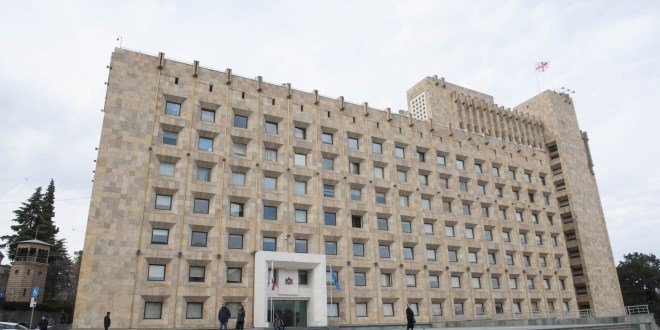
Georgian Government Denies Permission for Series of International Visits by President
The President’s office announced that on 31 August the President of Georgia, Salome Zurabishvili, will begin a series of meetings with European leaders to lobby for Georgia to be granted the status of candidate country for EU membership. Her first visit will be to Berlin, where she will meet the President of the Federal Republic of Germany, Frank-Walter Steinmeier.
The Administration of the Georgian government in its statement later today officially confirmed that on August 3 it refused to grant permission for the President to visit Germany. The statement of the Government Administration also reads that the consent for the following working visits of the President has been officially refused: Ukraine (August 22-24), Swiss Confederation (September 16), Poland (October 2-3), Kingdom of Belgium (October 4-6), Kingdom of Denmark (October 31-November 2), United Arab Emirates (December 1-2).
The statement also says that the requests for President’s official state visits to Bulgaria (September 27-29), Czech Republic (December 10-12), Israel (December 18-20) had also been rejected.
The statement reads: “We would like to remind President Salome Zurabishvili that in accordance with Article 52, Paragraph 1, Subparagraph “A” of the Constitution of Georgia, the President of Georgia exercises representative powers in foreign relations only with the consent of the Government of Georgia, as the implementation of the country’s foreign policy is the responsibility of the Government of Georgia in accordance with Article 54, Paragraph 1 of the Constitution.”
In response to the President’s announcement regarding the upcoming visits, the leader of the Georgian Dream parliamentary faction, Mamuka Mdinaradze, said that he can confirm that “the Georgian President does not have the consent of the government, which is required by the Constitution” for her international visits… “so she is violating the Constitution of Georgia”, adding that her going on an international visit without the consent of a government will be “disrespectful to the Constitution”.
He added that the lack of consent has its reasons, citing the President’s annual Parliamentary address in March this year. In it Zurabishvili harshly criticized the Georgian Dream government for cementing the one-party system, instead of strengthening state institutions; she also said the GD government “slowly begun to metamorphose.” Referring to that address as a reason for declining a visit consent Mdinaradze said: “For example, her last speech from the rostrum of the parliament, which was against Georgia’s European integration. As if Georgia didn’t deserve to be a European candidate – that was the spirit of her speech…”.
He then added: “So, when even our European colleagues confirm that Georgia is the first according to the necessary [EU candidacy] criteria, but the Georgian President says the opposite from the rostrum of the Parliament, there is, of course, a risk that their journey will be guided by the same objective…”.
Mdinaradze then argued that “there should not be a single person in Georgia – even if its government does not or cannot adequately fulfil the EU’s recommendations – a Georgian supporter, every Georgian citizen, everyone, must say that the recommendations have been fulfilled and that Georgia deserves [EU candidacy]. To say otherwise and to say that Georgia is following Russia’s path, is to sabotage Georgia.”
Mdinaradze said that the Georgian opposition and President Zurabishvili were using the same narrative, the “anti-Georgian narrative”, “the aim of which is to prevent Georgia from obtaining EU candidate status”. According to him, the opposition and the president are doing this in order to topple the government.
He also said that the GD would not pursue the impeachment of the president, if only because there would not be enough votes to impeach her, given the opposition’s support for the President.
Notably, the President of Georgia needs confirmation from the government to conduct official international visits. The consent for her international visits has been a contentious issue between the President and the GD government for some time: in March 2022, Salome Zurabishvili said that she was denied visits to Paris, Brussels, Berlin, and Warsaw.
Also Read:
- 0/06/202 – President Zurabishvili: “EU Cannot Afford to Lose Georgia”
- 15/06/2023 – President Zurabishvili: Russia Receives Ambiguous Signals From Georgian Authorities
- 31/05/2023 – President Zurabishvili at the European Parliament: We need to ensure that we do not miss a second chance
- 31/05/2023 – Georgian Dream and President Zurabishvili: the Cold War is About to Get Colder?
This post is also available in: ქართული Русский